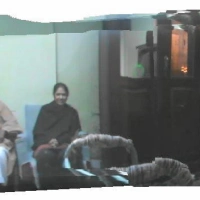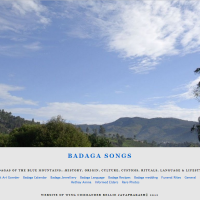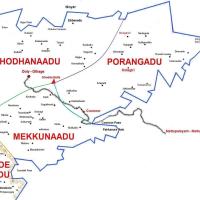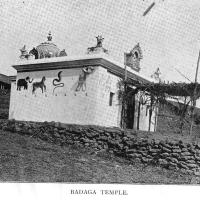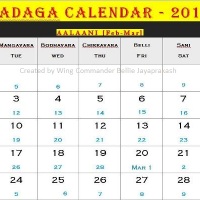Dharmalingam Venugopal
[Nilgiri Documentation Centre, (Camp) Ahmedabad]
A Nilgiri poetry day will be celebrated as part of the Ootacamund Day on September 13 at the Book Club of Nilgiri Library jointly with the Nilgiri Documentation Centre, Kotagiri. The day will mark the centenary of Nobel prize winning Mexican writer Octovia Paz who wrote a memorable poem on Ootacamund when he was the Ambassador of Mexico in India. The Blue Mountains have inspired poetries of several kinds for hundreds of years. The rich content and melodies of Toda, Kota and Badaga songs are living testimonies of this. The Nilgiri mountains have also inspired the visitors to pen many memorable poetry. Lord Tennyson mentioned the sweet Nilgiri air in this poem , ‘Brook’. Lord Macaulay is said to have got his ideas for some of his epic poems while his sojourn in Ooty. Later Percy Macqueen, Collector of Nilgiris, collected many folk songs, and donated his manuscript to the Madras University Library. Tamil scholar Ki.Va.Ja. edited the collection, which was published by Saraswathi Mahal Library in 1958. Ki.Va.Ja gave the collection the title ‘Malaiaruvi’. Justifying the title, he compares folk songs to the untrammelled gushing of a waterfall. A folk song, he writes, is like a flower that blooms on an untended plant in a jungle, in contrast to the structured verses of poets, which can be compared to a carefully nurtured jasmine creeper. Macqueen also wrote published a book Todaland, a collection of his poems on Nilgiris. Hilton Brown was an ICS officer and Collector of Nilgiris in the 1940s, who wrote a history of Parry & Co, Parry’s of Madras, in 1954. A prolific writer between the 1930s and the 1950s, he wrote a dozen novels, including, Dictators Limited, Susanna, Locust Food, That State of Life and Asylum Island, two collections of short stories, Potter’s Clay and Maya, three collections of verse, including Both Sides of Suez and The Gold and the Grey, two critical biographies — of Rudyard Kipling and Robert Burns — and an anthology titled The Sahibs that he edited and a non-fiction memoir, The Civilian’s South India. Brown wrote several poems on Nilgiris. Beyond the Jungle, a Tale of South India which was published by the Edinburgh publishers William Blackwood in 1968 was supposed to have been written by a Sita Rathnamal who was believed to be a Irula girl from Kil Kotagiri. It seems she was adopted and given a English education and later she became a nurse, marrying a Naval officer and wrote a competent autobiography in English which seems to have become a standard book for literature students all over India. She is said to have returned to her small village amidst the jungle and that there is no evidence whether she stepped out of the jungle after this return. Her identity is not still known.
For details of the Poetry Day, pl contact Mrs. Kamala (9442322218)
Badaga Poetry by Wg Cdr JP [Reproduced]
One of the enchanting aspects of Badaga Language is its disarming simplicity. But though the sentences are swathed in sweetness of simple words, it can contain deep expressions of emotions conveyed in the proper usage of rhymes [holla – alla] or pair words [huttu – nattu] apart from other attributes. When the sweetness of this language is combined to carry the human expressions in the form of a poetry, it is a great pleasure to indulge oneself in a world of sheer bliss.
When I came across the following poem, my first reaction was, ‘how beautifully the love of a mother has been brought out’. That set me thinking that there may be many other ‘unsung’ poets among ourselves. How nice if their poems in BADAGA could find a wider audience? I am not talking about some KAVITHAI in Tamil or a poetry in English. BUT ONLY BADAGA POEMS. By the way what is the word in Badaga for poem & poetry? I am sure it is not kavithai or kavi . Cannot be kadhe (song) too. Then……..??
This poem titled ‘My Mother’ by Mohan (hope he reads this and sends more of his creations) beautifully describes the filial bond and eternal love a mother has for her son even in very adverse, trying and difficult situations. She could not find any fault nor found anything demeaning, in the one whom she had brought into this world,nurtured, carried on her hips, cared for and brought up even when the rest of world rejected and rediculed him. I have attempted an English translation and hope I have captured the essence of the deep feelings expressed in the poem.The author has really ‘ played’ with the rhyming Badaga words and forcefully brought out not only the sadness and silent suffering of a son but also the uncompromised love of a mother.
Enna Awai by B.Mohan [of Kunna Bikkatti]
(From ‘Mandhadha Maathu’ – Published by Badaga Welfare Association, Madras, issue dated 1-4-93 (Hannu 3,- Hoo 10)
Kettu Muridhu Naa Kerio Kulibaneyu Huttu Nattu Enna Hollandhu Hegoneyu Hethu Thathi Saakidha Awai Enna Hollandhu Hegule Maathi Allandhu thallule Goonu bhuddu Naa Cooli Geevaneyu Huttu Kettu Naa Maasi Kulibaneyu Pattu Beetha Batte Ekkoneyu Kettandhu Hegule Awai Enna Mattandhu Thallule Kottage Huggi Naa Geria Baakoneyu Araya Kulidu Naa Danava Mesoneyu Horia Thookki Naa Hotte Kaibeneyu Kore Ondhu Hegule Awai Ondhu Ariandhu Nudivile
English Translation of the above poem by Bellie Jayaprakash
My Mother
Even when I was down with poverty and sat at the front court yard, Even when the near and dear ones despised and deserted, My mother who cared for and carried me as a baby, Did not blame me as bad and did not reject me,
Even when I toiled as a Cooli with a bent back, Even when I sat down with my looks dulled and dirty Even when I wore patched up old clothes My mother never gave up nor rejected me as gone !
Even when I swept the stables to clean the droppings, Even when I sat on the rock to tender the cows, Even when I lifted loads so as to suppress the hunger with the earning, My mother never found any fault ; never scolded me as ignorant.
Discover more from Badagas of the Blue Mountains
Subscribe to get the latest posts to your email.










 Mookuthi
Mookuthi  Chinna
Chinna 






 ==
==